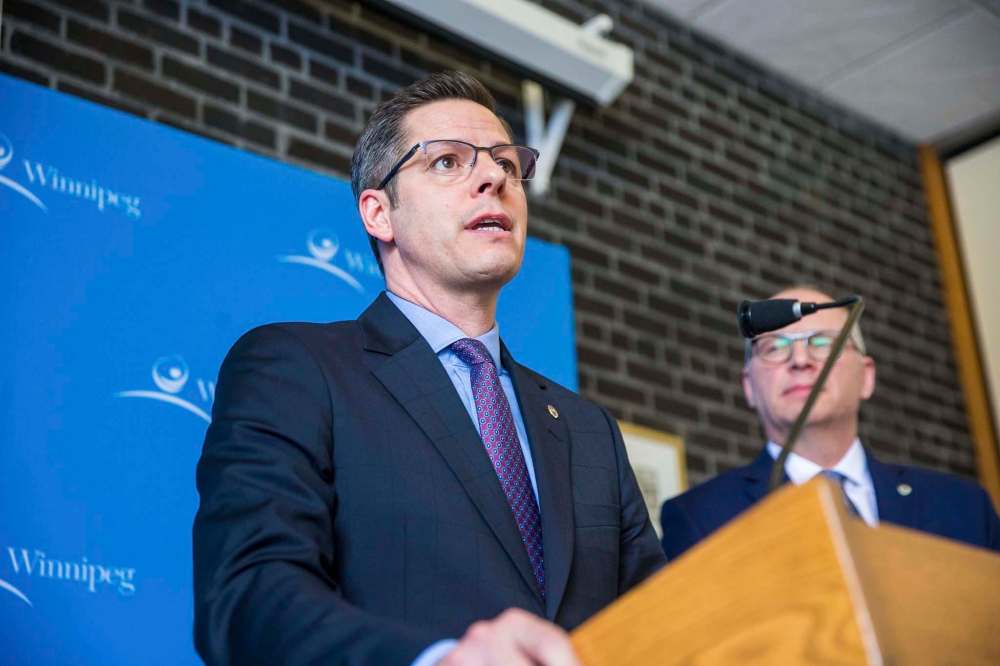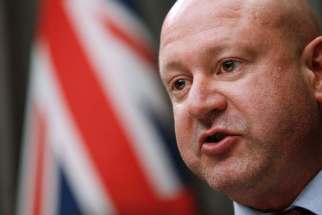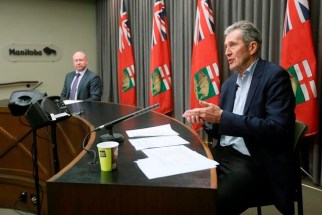City’s pension-plan gamble fails to pay off
Read this article for free:
or
Already have an account? Log in here »
To continue reading, please subscribe:
Monthly Digital Subscription
$0 for the first 4 weeks*
- Enjoy unlimited reading on winnipegfreepress.com
- Read the E-Edition, our digital replica newspaper
- Access News Break, our award-winning app
- Play interactive puzzles
*No charge for 4 weeks then price increases to the regular rate of $19.00 plus GST every four weeks. Offer available to new and qualified returning subscribers only. Cancel any time.
Monthly Digital Subscription
$4.75/week*
- Enjoy unlimited reading on winnipegfreepress.com
- Read the E-Edition, our digital replica newspaper
- Access News Break, our award-winning app
- Play interactive puzzles
*Billed as $19 plus GST every four weeks. Cancel any time.
To continue reading, please subscribe:
Add Free Press access to your Brandon Sun subscription for only an additional
$1 for the first 4 weeks*
*Your next subscription payment will increase by $1.00 and you will be charged $16.99 plus GST for four weeks. After four weeks, your payment will increase to $23.99 plus GST every four weeks.
Read unlimited articles for free today:
or
Already have an account? Log in here »
Hey there, time traveller!
This article was published 01/04/2020 (2087 days ago), so information in it may no longer be current.
One can’t help wondering how many people are currently suppressing the urge to say, “I told you so.”
The release this week of an arbitrator’s order for the City of Winnipeg to cancel its unilaterally imposed changes to the Winnipeg Police Service’s pension plan must have been a major disappointment for Mayor Brian Bowman and the members of city council who supported the controversial move, but surely none among them could have been surprised by the outcome.
This was, from the outset, a long-odds gamble by a mayor and council looking for every possible opportunity to dig themselves out of a very bleak budgetary situation — one that, if the roll of the dice came up lucky, might have saved the city $33 million by the end of 2023. Now that arbitrator Michael Werier has ruled the city lacked the authority to impose changes on the WPS pension plan without a negotiated agreement, however, the gamble has been exposed for the bad bet it always was.
At issue was a WPS pension arrangement that has long been viewed by its many critics as far too rich, in part because of the high percentage the city contributes to the plan, because WPS members are allowed to count the substantial overtime many work as pensionable earnings, and because of early-retirement provisions that mean some WPS pensioners might draw on the plan for 40 years or more.
City officials have long criticized the plan, describing it as “one of the most expensive plans in the country” and insisting it’s unsustainable in the long run, given the financial realities the city faces.
Every provision in the WPS pension plan is a result of contract negotiations between police unions and civic administration. Any further amendments to the plan must necessarily also be arrived at through the collective bargaining process.
Those things might be true, but what’s also undeniable is that every provision in the WPS pension plan is a result of contract negotiations between police unions and civic administration. Any further amendments to the plan must necessarily also be arrived at through the collective bargaining process.
That the mayor — a lawyer by trade, who is advised on such matters by the city’s legal staff — and councillors would think such changes could be imposed outside of a legally bargained agreement remains an ongoing puzzlement. Then again, the recent history of the segment of the civil service tasked with the city’s “lawyering” suggests it has not always provided the best of advice (see also: Parker lands, Sterling Lyon Parkway extension).

So now, in addition to forsaking the dreamed-of savings created by pension-plan alteration — which were earmarked for such laudable measures as preventing the layoff of police officers and cadets over the next four years (as foreshadowed in early budget projections) and enhancing front-line policing — the city now finds itself back at square one with the WPS pension’s costs while also being saddled with $600,000 in penalties to be paid to two police unions and individual WPS employees.
Mr. Bowman was not available for comment on the decision on Monday; the mayor’s office said no decision has been made on whether the city will challenge the ruling.
At least one city councillor hopes not. Brian Mayes (St. Vital), also a lawyer, who opposed the initiative in the first place, suggested it’s time for the city to cut its losses and move on.
“My view is this has been a very costly exercise and I don’t like our chances on appeal,” Mr. Mayes offered. “We’re paying hundreds of thousands of dollars in damages because we decided to act unilaterally.”
That isn’t exactly “I told you so,” but it’s close.








